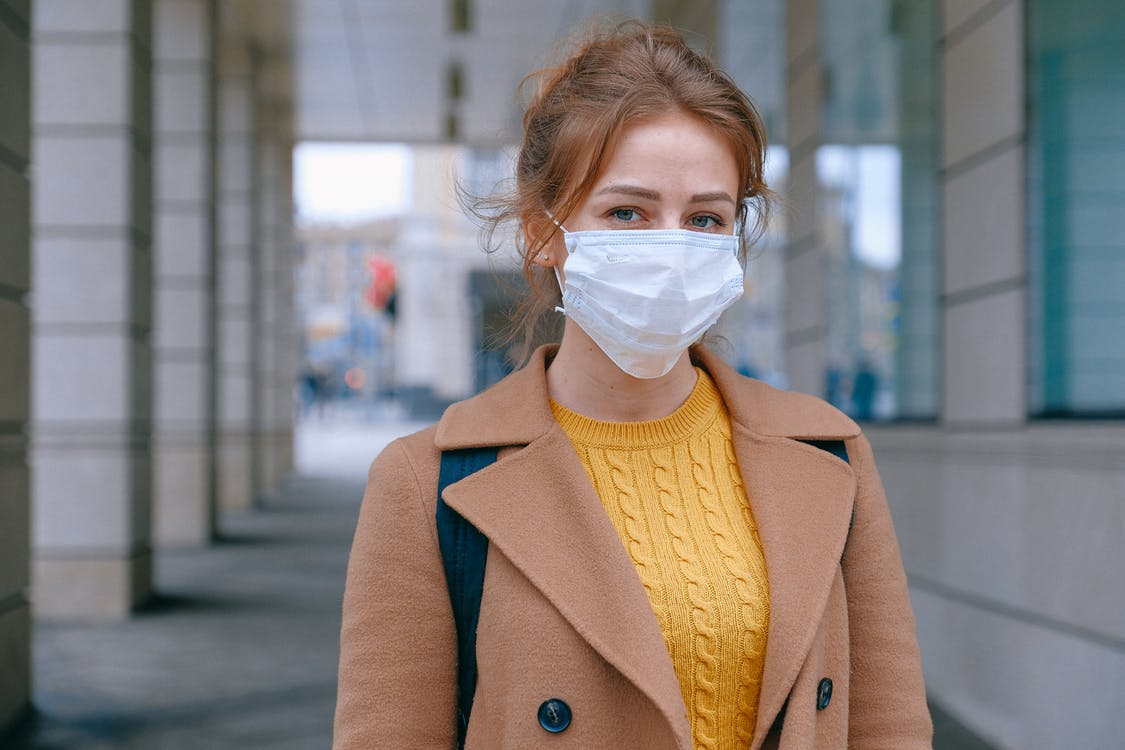 The coronavirus pandemic has taken basic symptoms of cold and flu and turned them into our worst nightmares. Before the pandemic hit, most of us would brush off feeling a little under the weather, going to work or to see friends without thinking much of it. Looking back, it seems impossible that we could be so callous about these things, but indeed, most of the time these symptoms really are nothing to worry about.
The coronavirus pandemic has taken basic symptoms of cold and flu and turned them into our worst nightmares. Before the pandemic hit, most of us would brush off feeling a little under the weather, going to work or to see friends without thinking much of it. Looking back, it seems impossible that we could be so callous about these things, but indeed, most of the time these symptoms really are nothing to worry about.
Since coronavirus has killed over a million people around the world, basic symptoms have taken on a whole new meaning for us. If we feel cold or flu symptoms, we are meant to isolate at home, shutting ourselves away for fear of spreading this potentially deadly virus. COVID-19 has taken a huge toll on all our lives; whether your work, personal life or general mental wellbeing has been affected, things have certainly taken a turn for the worse.
One thing that can be tricky is figuring out what your symptoms mean – are they coronavirus, or are they just feeling a bit under the weather? In this article you will find some helpful advice for determining your symptoms.
Symptoms of Coronavirus
Firstly, let’s recap the main symptoms of coronavirus. These are listed by the World Health Organisation, and reported by countless COVID-19 patients too.
The main symptoms are:
- A loss of taste and/or smell.
- A dry, continuous cough.
- A high fever.
- Extreme lethargy.
- Difficulty breathing or a tight chest.
This isn’t a comprehensive list, but one that contains the main symptoms of the virus that are most widely reported by patients. Coronavirus symptoms can be tricky to pin down, due to the fact that they have so many similarities to similar illnesses like a cold or the flu. If you do come down with any of these symptoms or multiple of them, it is crucial to get a coronavirus test quickly; make sure not to see anybody between the symptoms arising and the test result, just in case.
Cold Symptoms That Aren’t Symptoms of COVID-19
Although some symptoms of COVID-19 are similar to having a cold, some cold symptoms are very different to that of coronavirus. During the winter months, many people come down with the common cold as a result of chilly weather and generally poorer health during this time. This is nothing to be worried about, although of course, it might be good to get a coronavirus test just to be sure.
Here are some cold symptoms which aren’t commonly felt by coronavirus patients.
- A blocked nose or blocked sinuses. These can be alarming, but aren’t usually symptoms of COVID-19.
- A headache as a result of blockages.
- Earache.
These symptoms can be annoying, but they aren’t necessarily coronavirus symptoms. If you experience the above afflictions, you probably have nothing to worry about – it’s just the common cold come to visit in the wintertime!
Difficulty Breathing
Now comes one of the more worrying signs of coronavirus: difficulty breathing. Many patients who experience serious symptoms of coronavirus report that their lungs and chest feel tight, as if they can’t get in a full breath of air. This can be very scary for those experiencing it, although it is worth remembering that most people with coronavirus make a full recovery.
If you are experiencing difficulty breathing and feel concerned, contact a doctor immediately. If you have mild symptoms of tight-chestedness or similar feelings, there are various reasons why you could be experiencing this. Having difficulty breathing doesn’t necessarily mean you have coronavirus, although you should get tested at your earliest convenience.
Here are some reasons you could be experiencing a tight chest.
Anxiety is a mental health problem, but that doesn’t mean it can’t cause physical symptoms. On the contrary, there are plenty of physical symptoms that anxiety can produce, including nausea, sweating, shaking, loss of appetite, headaches and muscle tension. Indeed, one common symptom of anxiety is having a tight or painful chest. While this can be very frightening as it happens, having a tight chest due to anxiety can be relieved through calm breathing techniques.
We all have many reasons to feel anxious right now, and if you are one of those people who is feeling the burn, it is best to speak with a therapist to alleviate these issues.
Smoking
If you are a regular smoker, difficulty breathing or having a tight chest could be chalked up to the effects of cigarettes. You don’t have to be a chain-smoker or have smoked for years to experience these symptoms; they can happen to anyone who smokes regularly.
Heart Problems
Your heart is responsible for pumping oxygen around your body; if you are experiencing heart problems, this can feel like your chest is restricted. If you think you are experiencing a heart issue, contact a medical professional right away.
Other Respiratory Problems Such As Bronchitis
COVID-19 is not the only illness that can give you difficulty breathing. Bronchitis and other lung problems can cause similar effects to coronavirus. This doesn’t mean you shouldn’t worry – it is essential to have these things checked out as soon as you can – but you don’t need to panic and assume you have covid.
Asthma
Many adults go their whole lives without realising they have asthma. Asthma is caused by the inflammation of tubes that carry air in and out of your lungs, giving the sensation of difficulty breathing to the patient. It’s unknown how asthma is actually caused, but many people experience it from a young age. If you have asthma, you should be extra cautious about coronavirus – but if you feel like your chest is tight, it isn’t a sure sign of having contracted the virus.
Allergies
Allergy symptoms can affect the lungs and airways, making it difficult for people to breathe. If you feel you are having a serious allergic reaction, call the emergency services right away.
Mild allergies can also cause difficulty breathing, however.
Other Illnesses That Cause Covid-Like Symptoms
Other coronavirus symptoms, such as a dry, continuous cough and a fever, can also be caused by other factors. Let’s take a look at things that could cause similar symptoms.
A Dry Cough
Coughs that are the result of a chest infection usually produce a phlegm-like substance. If you are coughing up green mucus, it is unlikely that you have coronavirus, but rather a chest infection or flu. However, dry coughs are a very common symptom of coronavirus, so if you do experience this, make sure to book a test.

Dry coughs could also be caused by:
-
- Mold or damp in your home. Mold releases spores which can make you cough or feel tight chested. If you have mold in your home, you can easily get rid of it using bleach or mold remover.
- Allergies. Just like a tight chest, allergies can cause people to cough continuously.
A High Fever
Your body raising its temperature is a sign that something is wrong. This isn’t a reaction to your environment like a cough might be; usually a fever is a result of fighting some kind of infection.
However, having a high temperature does not mean you definitely have coronavirus. If paired with other symptoms, it could be that you have covid, but it could also be the result of a different kind of infection. This includes:
- Flu. You could have the flu, not coronavirus. It is crucial to get a lot of rest and drink plenty of water to replenish any fluids lost through sweat.
- Sunburn or heat stroke. If you have been exposed to an excessive amount of sun, your body can react by producing a high fever.
- Food poisoning. Food poisoning causes many reactions, one of which is running a high fever.
Whatever the cause, it is important to take a high fever seriously.
Getting A Coronavirus Test
The bottom line with these symptoms is that, if you experience them, you should be getting a coronavirus test. Even if this amounts to nothing, it is better to be safe than sorry. Getting a test should be relatively simple, although it may require driving a few miles to the nearest testing center.
Getting a coronavirus test is relatively painless, if a little uncomfortable. Make sure you comply fully with all the regulations at the testing center in order to produce the most accurate result. If you do test positive, it is crucial to follow the full isolation period and make sure you don’t come into contact with anyone.
Whether you have coronavirus or not, these symptoms can be annoying at best, and seriously affecting at worst. The best thing to do is to get some rest, try to sleep and take painkillers if needed. If you feel your symptoms are unmanageable, call a doctor right away.
Final Thoughts
Your symptoms might be confusing, but when you look a little closer at the other contributing factors presented here, it may become clearer as to whether they are caused by COVID-19 or other things.




























